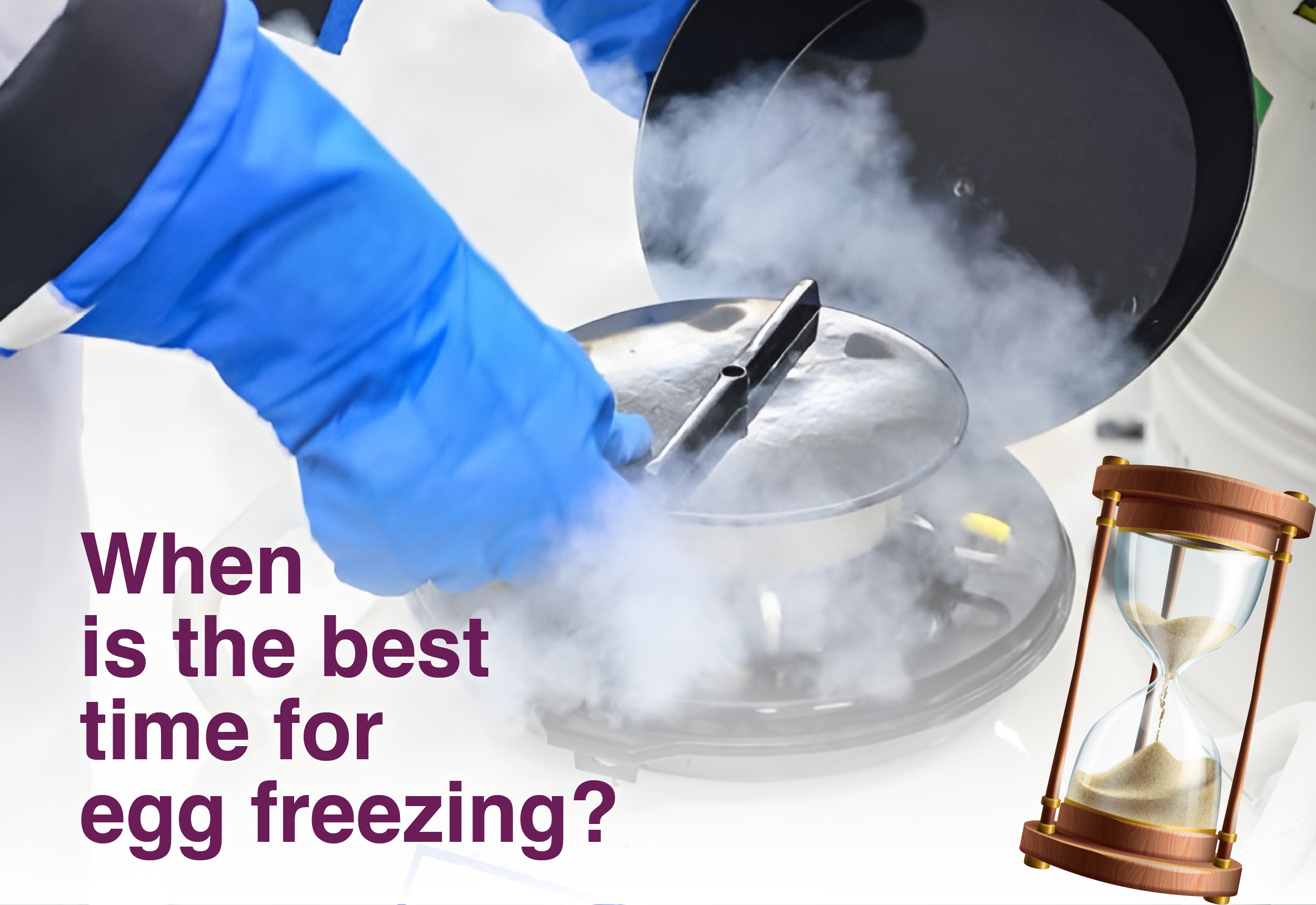Kw: Egg freezing, Fertility preservation, Best age for egg freezing
Thankfully, owing to the rapid advancements in medical technology, women are at ease when it comes to the biological clock constantly ticking off. You can store your healthy eggs until you’re ready to become a parent if you want to avoid that terrible tick-tock.
Age is a crucial factor for fertility
Egg freezing sets you free to plan your family on your timeline, without dealing with the pressure of age-related fertility decline. The best age for egg freezing is usually in your late 20s to early 30s when both the number and quality of ovarian eggs are at their peak. While medical advances have made it possible for women to have children later in life, egg quality naturally declines with age, making it harder to conceive without assistance as you turn older.
Your ovaries could not be in sync, even if you’re feeling your best and in excellent health. After the age of 35, fertility starts to decrease more quickly than it did in your late 20s. Regardless of your age or circumstances, freezing your eggs early on guarantees you more choices when the time comes to have a family. Opening up to a fertility doctor gives you the best clarity when to freeze your eggs depending on your objectives and personal health, giving you the peace of mind to prepare in advance.
Factors affecting the timing of egg freezing
Egg freezing is a powerful option for women looking to secure their fertility for the future, giving them more control over family planning. Typically, the best age for egg freezing is before 35, when egg quality is highest, but women in their 30s or early 40s also turn to this option for added flexibility. Whether due to medical needs, career goals, or personal timing, freezing eggs early can maximize the chance of a successful pregnancy when the time is right.
Egg freezing gives many people the choice to put off having children without sacrificing their ability to conceive in the future. Women can now start a family whenever they feel ready because of improvements in reproductive care that have made it possible to keep eggs for ten years or more. To ensure that each person takes this step with clarity and confidence, a fertility specialist can assist in determining the best time for them.
When is the best time for fertility preservation?
Several factors can influence the timing, including personal health, life plans, and medical conditions.
- Health conditions & medical treatments: For women experiencing medical conditions like endometriosis, autoimmune diseases, or planning cancer treatments such as chemotherapy or radiation, egg freezing may be recommended. These treatments often severely affect ovaries, thereby reducing the chances of getting pregnant in the future. Fertility preservation before undergoing any medical treatments ensures that you have a fertility backup plan when you’re ready to have children.
- Career and personal goals: For many women, career goals, education, and other personal goals come first. If you’re not ready to have children but know you wish to be a parent eventually, fertility preservation empowers you with a choice to delay motherhood without sacrificing your fertility. This is a desired path for women who are more focused on their careers or require more time to find the right partner.
- Family planning preferences: Some women may prefer to freeze eggs rather than embryos for future IVF procedures. This gives them more control over the process if they’re not in a relationship or don’t want to use a sperm donor at the time of freezing. By freezing eggs, women keep their options open and can use them with a partner, donor sperm, or a surrogate when they’re ready to start a family.
- Social or relationship timing: Women who may not yet have met the right partner or aren’t ready to start a family are highly recommended to explore fertility preservation through egg freezing. It is about the freedom to wait for the right time to start a family without worrying about declining fertility due to age.
Added advantages of egg freezing in the long run
Egg freezing extends flexibility and future security as the top two benefits of egg freezing. You can securely preserve your eggs for years once they are frozen, even for ten years or longer. This enables you to wait until you’re ready, which could be in your 30s, 40s, or later, to become a mother. Because egg quality gradually decreases with age, freezing your eggs early increases your chances of a healthy pregnancy later. Thawing frozen eggs and utilizing them for IVF has a high success rate, even after several years of storage, thanks to advancements in reproductive medicine.
Make a smart choice for your fertility preservation with Ferticity IVF
Egg freezing is a chance to take control of your future family planning. While the best age for egg freezing is typically before 35, many women in their 30s are choosing to freeze their eggs as a way to stay ahead of their fertility and keep options open. If you’re thinking about it, consulting a fertility specialist can help you learn the best timing based on your health, lifestyle, and goals.
Get to live life on your own terms, follow your own unique timeline. Speak to our experienced expert doctors who guide you about the ins and outs of fertility. Get in touch with us at https://ferticity.com/best-ivf-doctors-in-delhi

